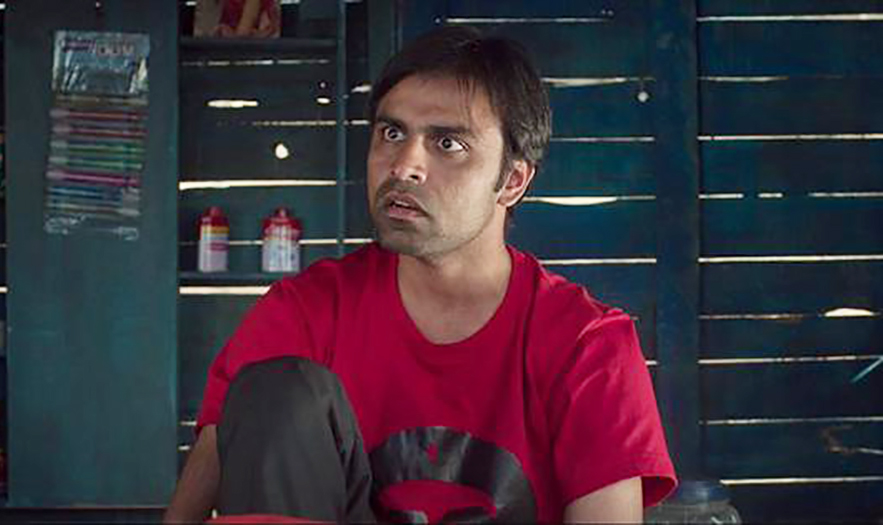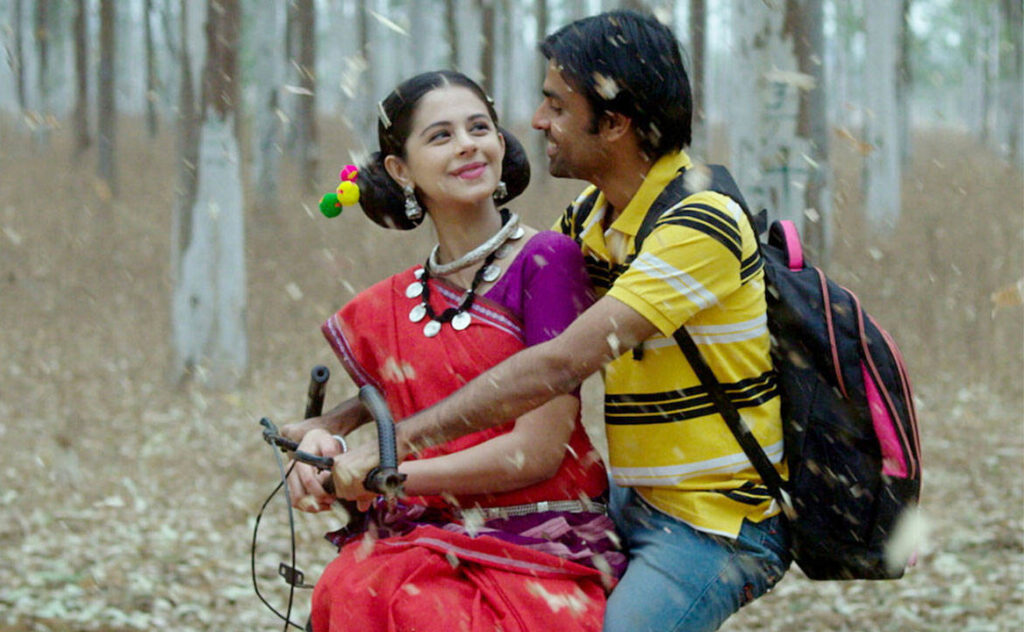What happens when a new girl who is modern, beautiful, and charming moves to a small town in India? The apt answer to it can be found in “Chaman Bahaar.” directed by Apurva Dhar Badgaiyann, who himself comes from a small town Bilaspur from India. The personification of toxic masculinity is reflected vividly in this film which starred Jitendra Kumar and mutes Ritika Badani. The story is set up in rural India, where gender norms exist and the same have been reflected.
Jitendra, who is celebrated for several of his performances on digital platforms, plays the role of Billu, the son of a clerk from the Forest Office Department. He is looking forward to making a name for himself in the town, so that people respect him. In an attempt to do so, he invests and starts a paan shop (a nicotine and cigarette store). But to despair, his dream is crushed when the street goes empty due to political demarcation. Soon a new family moves into the house in front of his shop, where a beautiful, modern, and charming teenage girl, Rinku lives. The entire town goes berserk and follows her everywhere she goes. Soon, a cluster of boys sits outside Billu’s shop day and night just to view a glimpse of the girl. There are two politically active boys Aashu and Shila, who have certain enmity and are following Rinku just like everyone else. Troubled with this behavior, the police intervene and Billu finds himself in trouble.
The plot of the film lacks any sort of clarity whatsoever, the audience find themselves confused with the multiple characters who just call each other “Daddy” for no apparent reason. The normalization of stalking underage girls is potentially problematic in a nation like India, where women are already unsafe. For a film which revolves too much around one girl, Rinku, she finds herself speechless and has no dialogues whatsoever, except when she calls for her dog, “Ruby.” The entire character of Rinku is so under-structured that she has no personality whatsoever.
Throughout the film one tries to understand what exactly is the plot or the central theme; do not be surprised with this…“there isn’t one!” All characters are running helter skelter! The director, Apurva Dhar Badgaiyann, has no sense of characterization or plot flow; the depiction of every character is so vague and ambiguous, you do not want to get invested in any character except Billu. The plots are so unnecessary; just to show the enmity between two groups, a vague and meaningless historical flashback is introduced in the film.

On a closer analysis, the colossal boring plot introduces unnecessary characters like Aashu and Shila played by the talented Alam Khan and Ashwani Kumar. They have previously provided us with spectacular performances that have grabbed the attention of so many and created a bond of cluster of loyal viewers. However, this film in some ways is a sham of the entire persona of Jitendra Kumar and Alam Khan and makes us question the trust they created. This film is a waste of pure talents, and how two incredible actors could not save a bad plotted film.
The film is a toxic depiction of masculinity in small-towns. Billu is lauded for all his actions which are in turn stalking and very problematic in nature; especially when Rinku is an underage girl. The romanticization of such a relation makes us question how does one even exercise their creative liberty and where should it be limited. This film is an addition to Bollywood’s list of toxic masculinity films.
In a nation like India, where the girls are already in a dearth of restrictions and are subjected to harassment, this film is the root cause of the same. A school teacher is shown having an ill-intention and unnecessary advance towards a student, but it is far more convenient to sit back and IGNORE! The film blames the girl at the end of it, who has barely spoken a word. Commenting upon a girl’s shorts in a derogatory manner, yelling that she will only be dating one guy and making her feel uncomfortable by stalking her at every corner is not only “objectifying” this girl, but also “normalising” it, which is the film’s biggest problem.
In short, “Chaman Bahaar” fails at multiple levels. It fails to utilise talented actors, it fails to create a new genre in itself, but it also fails the very rudimentary aspects of what is required in any film.


